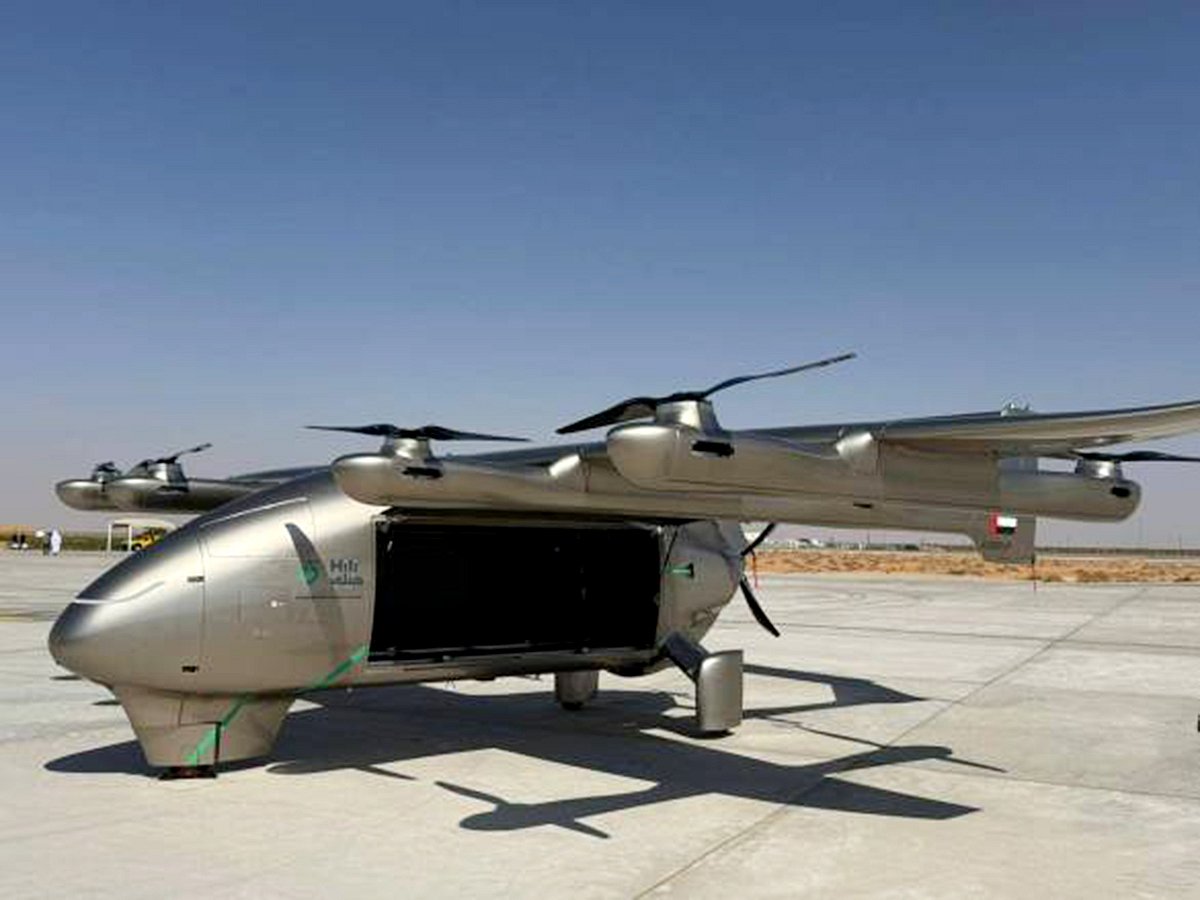Abu Dhabi: Sheikh Zayed bin Mohammed bin Zayed Al Nahyan on Thursday witnessed the maiden flight of Heli, a hybrid autonomous cargo aircraft launched by Emirati company LOOD. The aircraft marks a national milestone and a global innovation in sustainable air transport, being the first civil aircraft fully designed, developed and manufactured in the UAE by Emirati engineers. It is dedicated to medium-range heavy cargo operations.
UAE’s first homegrown hybrid cargo aircraft
As part of Abu Dhabi Autonomous Week — which brings together industrial innovation and artificial intelligence applications in transportation — Rashid Matar Al Mannaei, CEO of LOOD Autonomous, spoke about the launch of Heli, describing it as a major leap in the future of autonomous aerial logistics.
Al Mannaei said Heli is the first civilian aircraft dedicated to heavy cargo operations to be fully developed and produced locally. It was designed as an intelligent logistics platform capable of connecting ports and industrial zones without the need for conventional airports.
He explained that the aircraft takes off vertically using battery-powered electric motors before transitioning to horizontal flight through an internal combustion engine, making it unique in its class in terms of efficiency and range.
With a flight range of 700 kilometres and a payload capacity of up to 250 kilograms, Heli can perform fast and efficient cargo missions in remote areas or regions with limited infrastructure.
Hybrid system to overcome energy limits
Discussing the aircraft’s advanced technologies, Al Mannaei highlighted its hybrid propulsion system as one of its most innovative features. He said that while fully electric aviation is a growing global trend, it remains limited by battery capacity and energy density, which restrict flight range.
To overcome these challenges, the company developed a hybrid propulsion model that combines electric power with a high-efficiency combustion generator, allowing the aircraft to carry out long-range commercial flights without recharging stops.
The aircraft’s energy management system, he added, is powered by smart algorithms that balance power consumption and in-flight battery charging, ensuring stable performance and high operational efficiency. This makes the technology commercially viable today, rather than years from now as seen in many international projects.
A new era for autonomous air mobility
Al Mannaei said the Heli project reflects the UAE’s ambition to become a global hub for developing intelligent autonomous transport solutions. He revealed that the company is already working on international expansion plans to introduce the technology to new markets after proving its effectiveness in Abu Dhabi’s environment.
“Heli is not just an aircraft,” Al Mannaei said. “It represents a new logistics ecosystem built on autonomy, innovation and efficiency — marking the beginning of a new chapter in the future of air mobility in the UAE and beyond.”
Network Links
GN StoreDownload our app
© Al Nisr Publishing LLC 2026. All rights reserved.
